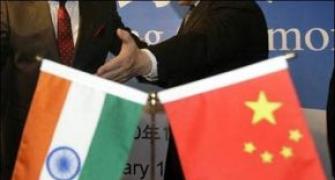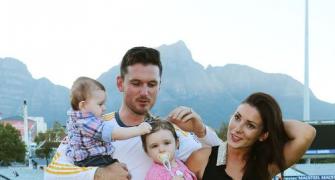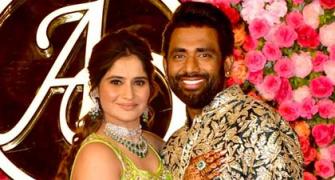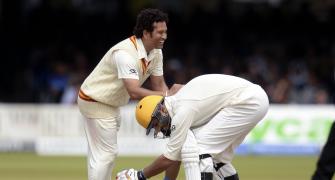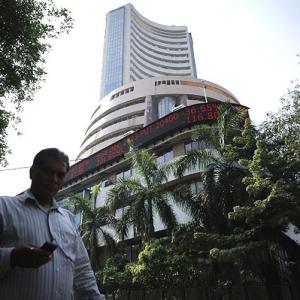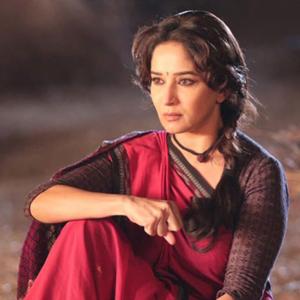 This week, after years of denying it, octogenarian politician N D Tiwari publicly accepted that Rohit Shekhar is indeed his son. For Shekhar, the change of heart must also come with a legal guarantee, says Veenu Sandhu
This week, after years of denying it, octogenarian politician N D Tiwari publicly accepted that Rohit Shekhar is indeed his son. For Shekhar, the change of heart must also come with a legal guarantee, says Veenu Sandhu
There is no trace of triumph, or even relief, on Rohit Shekhar’s face. He hardly looks like a man who has just won a six-year-long battle against a powerful politician who had, until a day earlier, refused to acknowledge to the world that he was his father. If anything, Rohit Shekhar, the son of former Uttar Pradesh and Uttarakhand chief minister N D Tiwari, appears in agony, the pain of years of rejection casting shadows on his animated and angry face.
It’s late in the afternoon. And Shekhar has been sleeping after a drink. “He’s been disturbed. Yesterday’s events (when Tiwari finally declared him his son at a press conference in Delhi) have been exhausting,” says his mother, Ujjwala Sharma. But he cuts short his nap and makes an appearance in a dishevelled white kurta-pyjama. His mother asks him to go and tidy himself up, but he shakes his head and says, “Let people accept me the way I am.” For a 35-year-old, he looks very young, almost like a boy, but one with a storm raging inside him. He is not interested in calming it.
The mother and son are seated in the comfortable, but modestly done up, living room of their two-storey house in Defence Colony in south Delhi. On the wall are pictures of Ujjwala’s father and Shekhar’s maternal grandfather, Sher Singh, the Jat leader who had played a key role in the formation of the state of Haryana and who had, from 1967 to 1980, held the posts of minister of state for communication, defence and education in Indira Gandhi’s cabinet. Till the time of his death in 2009, he had repeatedly urged Tiwari to legally adopt Shekhar and perform his duty as his father. On the sofa is an album where the proof of Tiwari’s relationship with Shekhar sits frozen in time. There is picture after picture of Tiwari with Shekhar — as a baby in his arms, as a toddler playing on his knees, as a five-year-old, six-year-old, ten-year-old cutting his birthday cakes over the years with Tiwari standing on one side and Ujjwala on the other.
For Shekhar, Tiwari, in the initial years, was an uncle who was exceptionally fond of him because he and his wife (Sushila) had no children of their own. He believed his mother’s estranged husband, B P Sharma, whose name figured in his school and other official documents, to be his father. “But when he was about 11 or 12 years old, my mother told him the truth,” recounts Ujjwala. “He was young and like any child of that age, was engrossed in his games and studies. His behaviour towards Tiwarijididn’t change. So we thought he hadn’t taken the matter too seriously.” But an internal conflict had started. He started noticing things that he hadn’t in the past. Why was it that Tiwari came for his birthdays and not his elder brother, Sidhartha’s? Why did he bring gifts for him and not for Sidhartha?
Sidhartha is 10 years older than Shekhar and is the son of Ujjwala and B P Sharma. While he runs a business, Shekhar, who has studied law from Delhi University, is working as an apprentice with some lawyers. The sons live with their mother at Defence Colony. They have chosen not to marry. “They say, ‘We’ve seen both marriage and love. We are better off without them’,” says their mother wryly. Till the time of his death last year, Ujjwala’s estranged husband lived on the first floor of the house. Both Sidhartha and Shekhar tended to him till his dying day.
Stepping back into the past, Shekhar recalls how every few days he would return from school to find his mother in hospital and on oxygen. He was then a student at Modern School. “I was going through an emotional upheaval,” says Ujjwala. “One moment I would think Tiwariji is giving me false assurances and that he has no intention of marrying me and giving Rohit his surname. And the next moment I would think, no, he is genuine. His behaviour was confounding.”
Years slipped by this way until Shekhar turned 16. “Tiwariji stopped visiting us altogether,” says the mother. “He probably thought with his son all grown, it would become difficult to scuttle the matter of adopting him. Maybe he felt this aspect of his life would prove counterproductive for his political career.” By now Tiwari had thrice been the chief minister of Uttar Pradesh. And in 2002, he became the chief minister of Uttarakhand.
Even so, on October 18, 2005, on Tiwari’s 80th birthday, the mother and son decided to go for the massive party organised at his official residence in Dehradun that was attended by thousands of people. “He saw me, but refused to acknowledge me,” says Shekhar. He says they were instead taken to the private quarters where Tiwari later joined them to cut his birthday cake, away from public glare. That was the tipping point.
Finally, on September 13, 2007 Shekhar filed a paternity suit against Tiwari in the Delhi high court. “It all began on a very positive note,” says Supreme Court lawyer Kamini Jaiswal who has closely witnessed the family’s struggle. “But this is a very traumatic experience for a child, whatever his or her age, and it has taken a toll on Shekhar’s health,” she says.
Not long after he filed the case, Shekhar had a brain stroke and heart attack simultaneously. He was only 28. “The doctors said he wouldn’t survive, but age was on his side,” says his mother. A heart patient for seven years, he asks, his face contorting in pain, “Tell me, does anybody deserve this? Would any mother want her child to end up with a heart problem at 28?”
Tiwari might have finally made a dramatic public declaration that Shekhar is indeed his son, but Shekhar wants nothing short of a court decree that puts this down legally in black and white. And then it is only logical that the name of his father in all documents, such as his passport, changes from B P Sharma to N D Tiwari, he says.
And his own name? “It should be Rohit Shekhar Singh Tiwari,” says Ujjwala but that is something he’s still thinking about. “Years of wrong cannot be righted by one pat on the head,” says Jaiswal. Besides, during the press conference, when asked if he would make Shekhar his heir, Tiwari’s response was ambiguous. “I have no property,” he said. Shekhar looked him in the eye and said: “Saaf dil se apnaayi na (accept me with a clear heart).”
Apart from the court decree, Shekhar wants an injunction so that no individual or department can later dispute that he is Tiwari’s son. Shekhar says that he has spoken to Tiwari so that the two could move a joint application before the court and “put the matter to rest once and for all”. “Why do we have to wait till April 21 (when the case comes up for final hearing)?” he says.
Tiwari’s lawyer Bahar U Barqi, meanwhile, says, “So far I have had no instructions from him (Tiwari). As of today, unless one of the two parties involved moves forward on the statement that was made (by Tiwari) a few days ago, the case will be argued on the merit of the law when it comes up on April 21.”
Friends and family have, meanwhile, stood by the mother and son like a rock. “Vedant Varma (son of former diplomat Pavan Kumar Varma) has worked very hard on this case,” says Shekhar. “Vedant bought the case to me,” says senior lawyer Raian Karanjawala whose firm, Karanjawala & Co, contested the case pro bono. “It was the first such case that came to us. And it has been a pathbreaking one with the court ordering a DNA test to determine paternity.
It has set a precedent for such case,” says Karanjawala. “It has established the right of a child -- at any age -- to know his paternity,” adds Jaiswal. The DNA test proved that Shekhar is indeed Tiwari’s son.
Shekhar now wants words such as bastard, unchaste and concubine to be removed from the legal lexicon. “These are derogatory towards the child who is innocent. It’s the father who is illegitimate,” he says.
In this tedious, emotionally draining battle, the law has proved to be on his side. “And nature too,” says Jaiswal. “He is such a carbon copy of Tiwari. He just has to wear a topi and he’d look just like him.”



